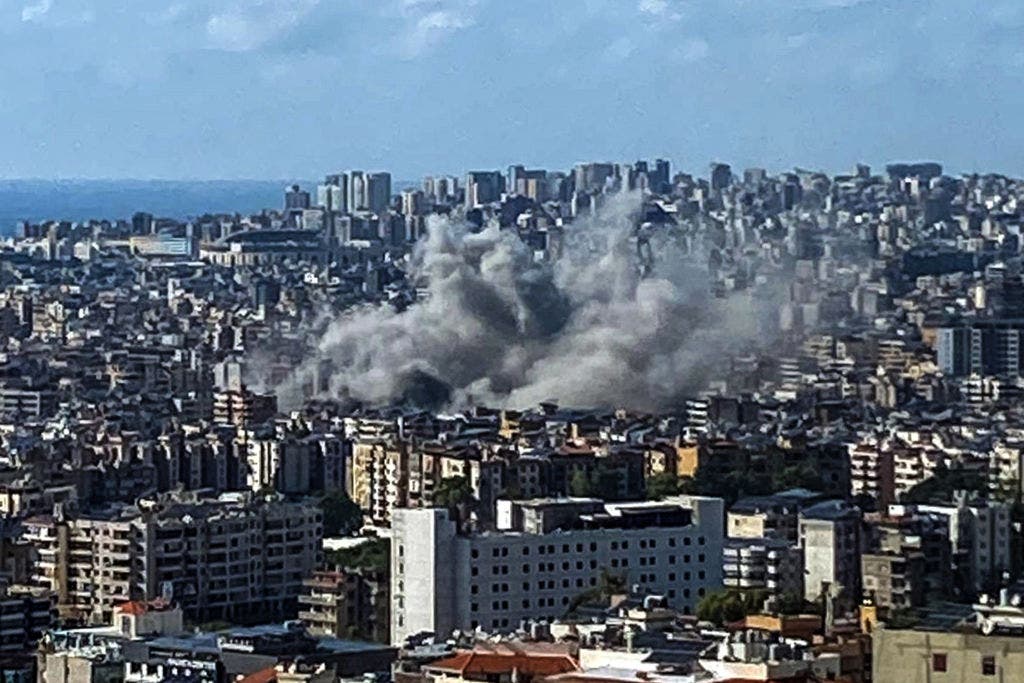As Israel’s air force intensifies its attacks on the Hezbollah terrorist group, criticism is being directed towards United Nations Security Council Resolution (UNSC) 1701 for failing to disarm the Lebanon-based organization. Passed in 2006, Resolution 1701 aimed to prevent a third war between Israel and Hezbollah, but key elements of the resolution have proven to be ineffective. The deployment of the U.N. Interim Force in Lebanon (UNIFIL) and the disarmament of Hezbollah have not been successful, with Hezbollah now possessing at least 150,000 missiles and rockets aimed at Israel.
Experts suggest that Resolution 1701 is limited and cannot effectively address the Hezbollah threat on its own. There are calls for the enforcement of the 2004 UNSC Resolution 1559, which called for the disarming and dismantling of Hezbollah as a militia. However, the structure of the Lebanese government, which is controlled by Hezbollah, complicates the implementation of such measures. Some Lebanese factions have begun to resist Hezbollah’s dominance in certain areas, but a unified effort is needed to effectively disarm the group.
Former members of the U.S. National Security Council have criticized the failure of Resolution 1701 and the lack of enforcement mechanisms. They argue that the U.N. peacekeeping force in Lebanon, along with the Lebanese Armed Forces, have not effectively contained Hezbollah’s rearmament. There are concerns that the only viable option for disarming Hezbollah lies with the Israel Defense Forces, as previous international efforts have fallen short. Senate Minority Leader Mitch McConnell has also highlighted the U.N.’s inaction in preventing Hezbollah’s aggression towards Israel.
The recent escalation of violence involving Hezbollah and Hamas attacking Israel has reignited concerns about Iran-backed terrorist activities in the region. There are calls for the international community to address the growing threat posed by Hezbollah and its influence over Lebanon’s government. Despite requests for emergency U.N. Security Council meetings, there are doubts about the effectiveness of international efforts in addressing the root causes of the conflict and ensuring stability in the region. Countries like France have urged all parties to avoid a regional conflict that could have devastating consequences for everyone involved.
France’s historical ties to Lebanon have influenced its stance on Hezbollah, with Paris opposing the classification of the entire organization as a terrorist entity. This contrasts with several other countries, including Germany, Canada, and the United Kingdom, that have designated Hezbollah as a terrorist group. The failure of Resolution 1701 to disarm Hezbollah and prevent its aggression towards Israel has raised questions about the U.N.’s effectiveness and impartiality in addressing the conflict. The U.S. State Department has expressed concerns about Iran’s role in providing weapons to Hezbollah in violation of Resolution 1701.
In conclusion, the ongoing conflict between Israel, Hezbollah, and other terrorist groups highlights the challenges of implementing international resolutions aimed at promoting peace and stability in the region. The failure of Resolution 1701 to disarm Hezbollah and prevent its rearmament underscores the need for stronger enforcement mechanisms and international cooperation. As the situation continues to escalate, there is a growing consensus on the need for a comprehensive approach to address the root causes of the conflict and ensure lasting peace in the region.


